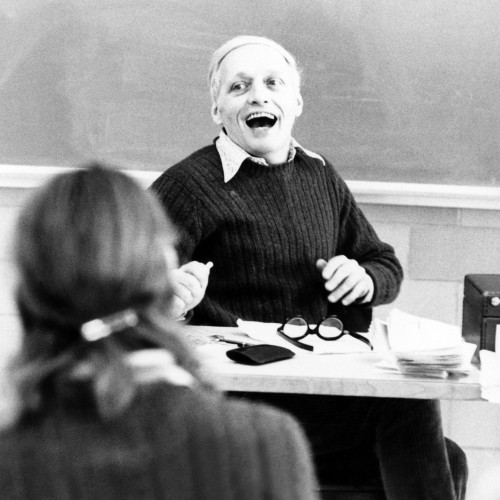
Back-to-School Insight from Alumni Educators
For Thomas Higgins ’00, September, rather than January, kicks off the new year. “I think a lot of educators feel this way,” says the principal of L.G. Nourse Elementary School in Norton. “It’s a time for fresh beginnings and endless possibilities.”
A wide range of emotions—from excitement and anticipation to anxiety and stress—is common for students, parents and teachers alike. As summer winds down and a new academic year begins, we checked in with three alumni who work in education and asked them to share some back-to-school insight.
Mistakes in the Making
“I love to remind students that they are in school to learn and grow, and we can’t do that without making mistakes. I try to model mistake making every day—and I’m pretty good at it!” says Higgins, who was a teacher and principal in the Easton schools for 22 years before taking on his new role with Nourse Elementary this year.
Yet…
When Mary Evans ’18, a first grade SEI (Sheltered English Immersion) teacher at the Baker School in Brockton, sees a student struggling with a task, she emphasizes the word yet. “If they are having a difficult time with a math lesson, for example, and they say they can’t do it, I’ll rephrase it by saying, ‘You can’t do it, yet.’ This encourages the student to keep trying.”
Validate Feelings
Although a parent’s instinct might be to say to a child who is anxious about the school year, "Don't be nervous; it will be fine,” it is important to validate your child's feelings, advises Christine Marcolini ’97, a school psychologist who works as the coordinator of school support at Dennett Elementary in Plympton.
Instead, Marcolini suggests a response such as, "Of course, you are nervous! This must all feel very new." Or "Being nervous to start a new school year is totally natural—I'm nervous too." Marcolini also recommends talking with your child about strategies they can use when the nerves pop up, for example, taking deep breaths, getting a drink, saying something positive to themselves ("I've got this!"), or doing a quick activity that they enjoy.
He reminded us constantly to stop trying to make children grow up so fast, and to instead make ourselves ‘grow down.' He didn’t want us to forget what it’s like to be a child. I’ve carried that with me my entire career.
Lasting Lessons
All three educators recall Stonehill lessons that continue to resonate with them today.
For Higgins, he has fond memories of his courses with Professor of Education Albert Cullum, who passed away in 2003. “He reminded us constantly to stop trying to make children grow up so fast, and to instead make ourselves ‘grow down.' He didn’t want us to forget what it’s like to be a child. I’ve carried that with me my entire career.”
Marcolini, who has been a school psychologist for 24 years, recalls a lesson she learned in a disabilities class as a psychology major. “You never know what someone may have gone through recently or is managing currently. I do not typically greet a student by saying, ‘How was your summer?’—what if they had a challenge or loss I do not know about? Instead, I say, ‘I'm so happy to see you! How are things going?’ or ‘How have you been, my friend?’”
As Evans begins her second year of teaching, she credits her Stonehill professors with giving her real classroom experience and providing her the opportunity to do her student teaching in the Brockton schools. “This allowed me to already have a relationship with the school system where I then began teaching.” Evans also notes that her experience at Stonehill was particularly special because her mom—Marie (Princigalli) Evans ’82—also studied education at the College.

